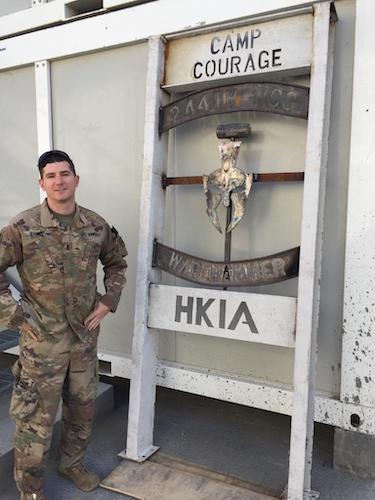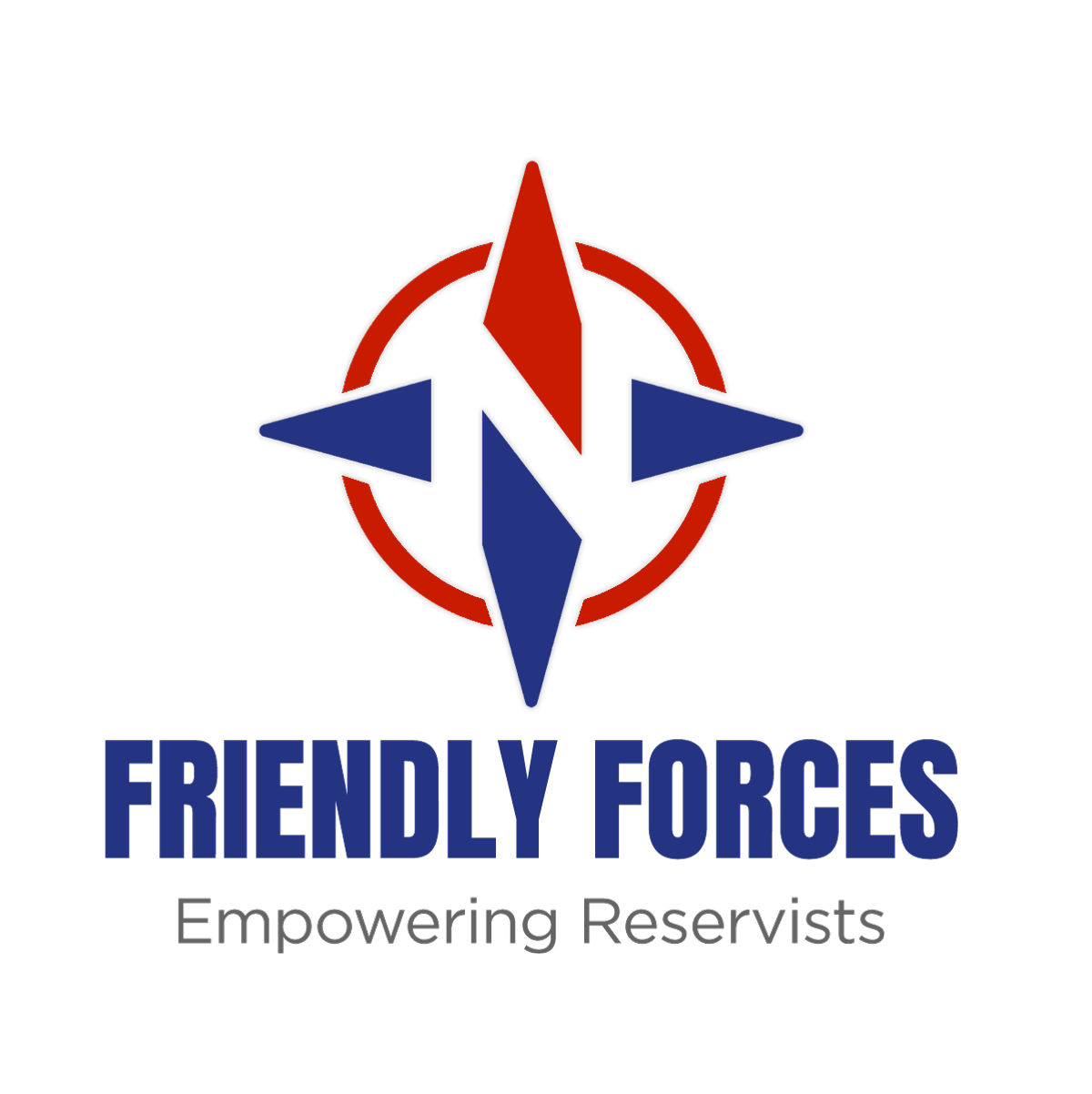Serving at Home and Away
Capt. Eric Evans ’09 founded Friendly Forces to help fellow reservists and National Guard members find work with companies that have supportive military leave policies
May 22, 2023
By
Julia DeKorte ’23
After enlisting in the Army National Guard at age 26, Capt. Eric Evans ’09 immediately noticed the difficulty guard members and reservists face in finding employers with supportive military leave policies. After being deployed to Afghanistan in 2019, working for companies with widely varying military leave policies and hearing stories from other people having similar difficulties, Evans launched Friendly Forces, a company that offers the first comprehensive list of businesses rated on how supportive they are of reservists and guard members.
“The gap between what corporate America says and does is very real regarding tangible support to employees who serve in the military,” Evans says. “So we set out to empower reservists with the knowledge they need to make data-driven decisions about where to work — information that is often nonexistent, hard to find, not publicly available or inaccurate.”

A few years after graduating from William & Mary, Evans enlisted in the Army National Guard as an infantryman. He is now a team leader with an East Coast-based special operations civil affairs unit in the Army Reserve. Over the past 10 years, he has been mobilized for natural disasters, provided defense support to civil authorities during riots and led an engineer platoon in Afghanistan, among other assignments. Now, he also works full time at the Pentagon in Washington, D.C., and sits on the National Guard Employment Council.
Throughout these experiences, Evans maintained a full-time civilian career with consulting companies such as Deloitte, PwC and Peraton. The challenges of balancing civilian jobs while serving in the military motivated him to take action to help others in a similar situation.
“The seed for Friendly Forces was planted back in 2013,” Evans explains. “I told my employer at the time that I had enlisted in the Army National Guard and that I would need four to five months off to attend my initial training. Three weeks later, I was called into a meeting and asked to resign.”
“I quickly realized how common that problem is. Reservists face that type of discrimination all the time, all across the country with employers of all sizes.”
Evans awards companies a number of stars, one through five, with one star meaning they offer three weeks or fewer of paid military leave, and five stars if they offer a full salary for the duration of deployment or training.
“Friendly Forces aims to create that bridge between supportive employers and highly skilled, driven individuals from within the ranks of the reserve branches,” Evans explains. Updated on a weekly basis, the Friendly Forces website includes useful links and professional development resources for veterans and reservists to use.
Taking it one step further, Evans also invites companies with three-, four- or five-star ratings to license the Friendly Forces credential through a partnership. Most recently, Friendly Forces partnered with Bristol Myers Squibb, a global pharmaceutical company with a five-star rating for their two-year full salary continuation policy. Aside from displaying the Friendly Forces credential on its website, this also means that when Bristol Myers Squibb has open positions, Friendly Forces can deliver resumes of reservists and guard members who have uploaded their resumes to Friendly Forces who meet the job criteria.
“In my experience,” Evans explains, “the focus of veteran recruiting hiring programs is on active duty, transitioning veterans. It’s great that companies want to hire those veterans, but those veterans are out of the military. Reservists still have one foot in the military.
“So what I’m trying to do is aggregate that information for reservists but also educate and inform industry and the public about these issues that we face and ways that they can be more supportive of reservists and not just transitioning active-duty veterans.”
In addition to Friendly Forces, Evans is also trying to make a difference through his service as an advisory board member of the National Guard Employment Network, which works to address and overcome challenges faced by reservists in terms of finding employment, and through discussions with legislative advocacy organizations.

Evans and his team, who are based in the Washington, D.C., area, have big plans for Friendly Forces. As well as securing additional partnerships, they are launching a podcast and newsletter as part of a joint effort with a humorous social media lifestyle brand that caters to National Guard and Reserve service members. Friendly Forces also plans to establish a consulting service in which they advise companies on how to better support military reservists holistically.
Jonathan “JD” Due, executive director of W&M’s Center for Military Transition, has been following the development of Friendly Forces since Evans first reached out to him in the fall of 2021. The two met in person last fall at an event hosted by the Association of 1775 in honor of Veterans Day.
“One of the incredible things about veteran entrepreneurs such as Eric is that they are able apply a rich and unique military experience and combine that with a world-class education to create innovative solutions to real problems,” says Due. “Friendly Forces is precisely one of those innovative solutions that makes a real difference. Eric’s simple yet effective approach addresses a real challenge in a meaningful way. There are almost 800,000 soldiers, sailors, airmen, and Marines who serve in our Reserve components. And the information that Eric curates not only informs them, but it does so in a way that is truly empowering.”
Evans thinks fondly of his time at W&M. After spending his freshman year at the College of Charleston, he transferred to W&M looking to take his studies more seriously and began pursuing a major in government. He was struck by the history and beauty of the campus, the caliber of his fellow students, and the strong sense of community. He joined the Kappa Sigma fraternity, where he not only made lifelong friends, but developed leadership, marketing, budgeting and other skills that help him with his business today.
“William and Mary is a special place, and through my work with JD Due and the Center for Military Transition, I’ve been able to plug back into all of it, which is awesome,” says Evans.
For current students, Evans offers this piece of advice: “Grades are important, of course, but more so is the ability to connect with people, cultivate relationships, and not be afraid to go out on your own and develop an idea you have — take a risk by taking the road less traveled.”